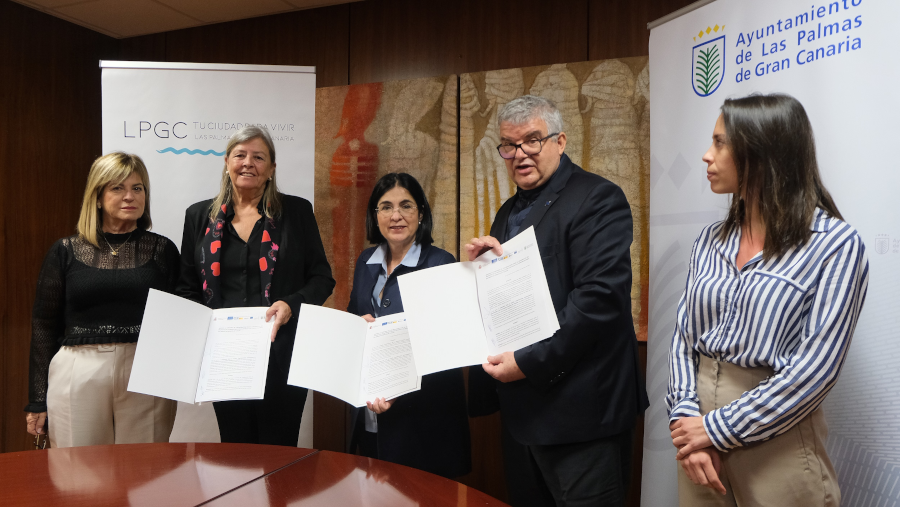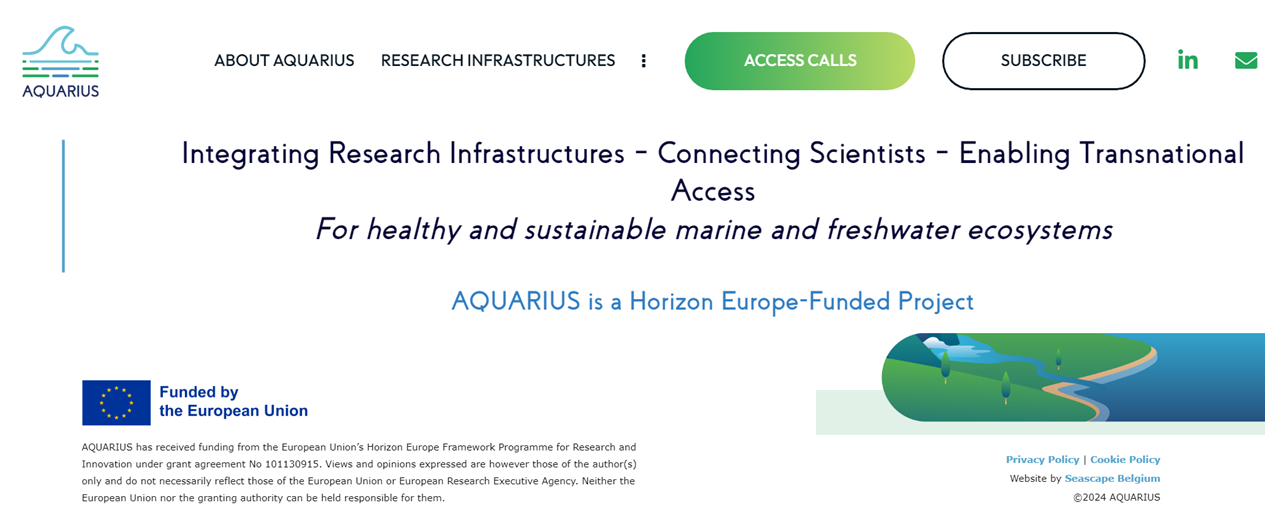The director of PLOCAN, José Joaquín Hernández Brito, participated in the conference “The ocean as an ally against climate change: The Canary Islands and marine carbon sequestration” in which the EU scientific project OceanNETs was presented. The project, which is coordinated by GEOMAR, investigates the potential of the oceans to capture carbon dioxide from the atmosphere, and thus mitigate climate change.
During the event, which was held at the Poema del Mar aquarium, the potential of the islands as a space to investigate ocean carbon sequestration and to develop its economic and environmental potential was discussed with the participation of the Chancellor of the University of Las Palmas de Gran Canaria, Lluis Serra; the director of the Unesco del Mar Chair, Javier Arístegui; the director of PLOCAN, Joaquín Hernández Brito, and the director of Loro Parque Fundación, Javier Almunia.
According to current estimates by the Intergovernmental Panel on Climate Change (IPCC), the goal of limiting global warming to below 1.5 ° C, adopted in the Paris Agreement in 2015, cannot be achieved without the active removal of CO2 of the atmosphere. The OceanNETs project is investigating the extent to which ocean-based approaches can contribute to this goal.
“The objective of OceanNETs is to determine to what extent, and under what conditions, the deployment of negative emissions technologies based on the oceans could contribute to viable, sustainable and effective formulas for Europe and the world to achieve not only climate neutrality, but the capability of removing a large part of the CO2 already emitted from the atmosphere”, explained Javier Arístegui. The project also aims to identify and prioritize the options with the greatest potential to contribute to CO2 reduction, measure environmental impact, risks, technical feasibility and profitability, and social acceptance.
The director of PLOCAN, Joaquín Hernández Brito, highlighted “the importance of the scientific and technical infrastructures of the Canary Islands, which make the Archipelago a privileged test site for the development of the marine technology of the future, capable of attracting large European projects”. In this sense, the Chancellor of the ULPGC, Lluís Serra valued the importance of the studies “considering research as an investment and a motor of progress and not as a simple expense”.
OceanNETs combines the expertise of scientists from the natural sciences, engineering, economics, sociology and the law of the sea. The measures to be used ultimately can only be decided by weighing all the advantages and disadvantages to mitigate climate change in a social context.
The OceanNETs project is developing studies in the port of Taliarte, in Gran Canaria to understand the potential and possible impact of one of these methods: increasing the alkalinity of the oceans.



